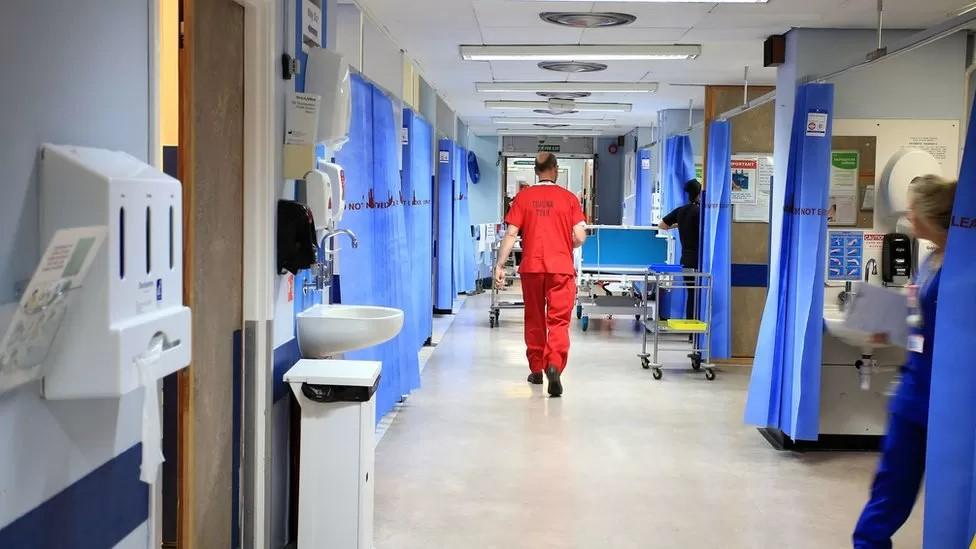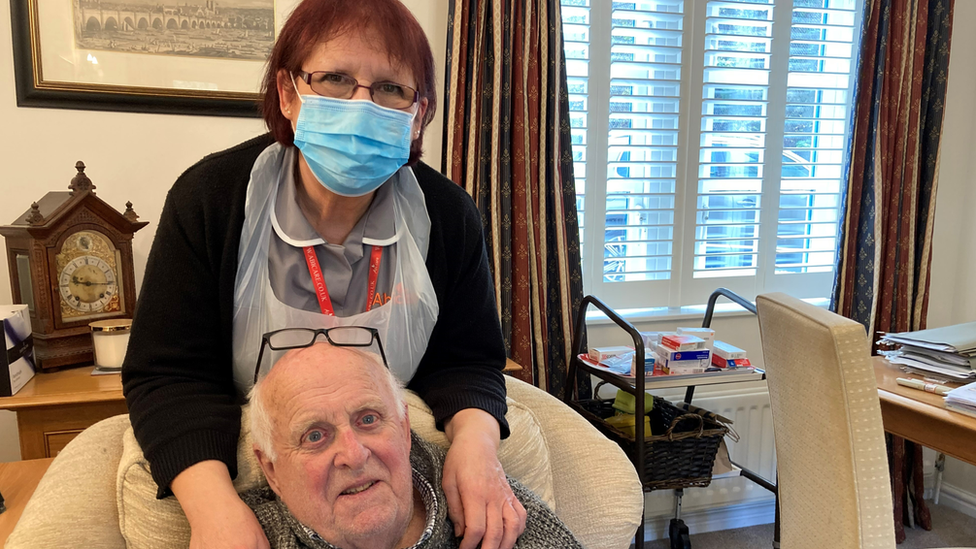Health leaders warn of rise in norovirus cases
- Published

Hospitals and care homes across the region have reported the bug spreading among staff and patients
Health leaders are calling for the public's support to slow the spread of norovirus.
An increase in cases across Wiltshire, Bath and North East Somerset is adding extra pressure to an already busy NHS, the local Integrated Care Board warns.
Hospitals and care homes across the region have reported the bug spreading among staff and patients.
People have been asked to stay at home until at least 48 hours after norovirus symptoms pass.
The virus passes easily from person to person, and causes symptoms such as sickness, diarrhoea and dehydration.
Data suggests the current number of cases is twice as high as it was this time last year.
Sarah Merritt, deputy chief nurse at the Royal United Hospitals Bath NHS Foundation Trust, said: "At the RUH, we are seeing a much higher than usual rate of norovirus infection, and this is having a significant impact on our bed availability as we manage our clinical areas to reduce the spread of infection and keep the people we care for safe."
Stopping the spread
Washing hands regularly with soap and water can kill any lingering norovirus germs, as can disinfecting toilets, kitchen surfaces and door handles.
People experiencing norovirus are advised to rest, drink plenty of fluids and follow the guidance on how to get better listed on the NHS website, as most people will recover in a couple of days.
Connie Timmins, lead nurse for infection prevention and control at the Bath and North East Somerset, Swindon and Wiltshire Integrated Care Board, said: "Staying at home, as well as avoiding health and care settings, including hospitals, GP practices, pharmacies and care homes, will protect others, especially those who are vulnerable, from falling ill."
Follow BBC West on Facebook, external, Twitter, external and Instagram, external. Send your story ideas to: bristol@bbc.co.uk , external
- Published18 January 2023

- Published20 January 2023

- Published28 January 2023
